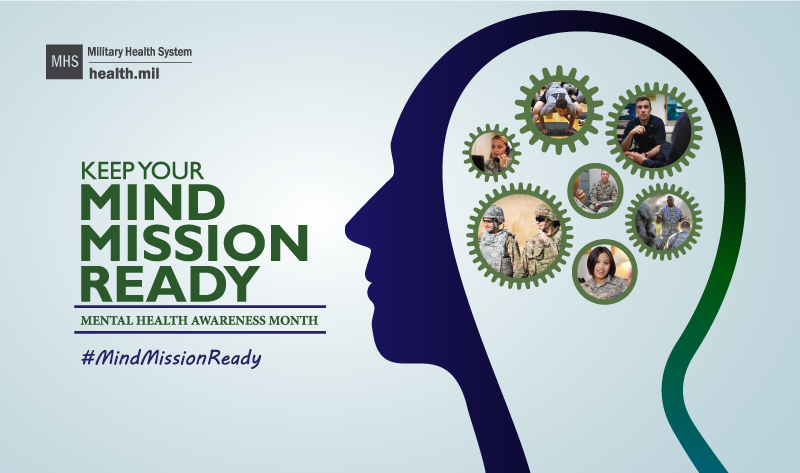Pfc. Savannah Roy
3rd ID Public Affairs

According to Mental Health America, approximately one in five adults have a mental health condition and over 56% do not receive treatment. (Courtesy Graphic)
Give thought, understanding to Mental health awareness month
According to Mental Health America, approximately one in five adults have a mental health condition and over 56% do not receive treatment.
Youth depression rates have increased to more than 11% and 8.8% of those have received insufficient or no treatment.
May is Mental Health Awareness month. Mental health is essential to the overall health and well being of individuals and Families. The 3rd Infantry Division is dedicated to placing an equal amount of importance on mental health as they do physical health and fitness.
“Mental health is the basis of a happy and satisfied life,” said Teri Oglesbee, a child youth behavior-military and family life counselor. “It affects your perspective, your views, your attitude and your daily flow of life.”
Common mental health illnesses include attention deficit/hyperactivity disorder, depression, anxiety, post-traumatic stress disorder and adjustment disorder.
“Each mental illness has its own symptoms, but common signs of mental illness in adults and children include but are not limited to excessive worrying or fear, feeling extremely sad or down, or problems concentrating and learning,” said Oglesbee.
Mental Health Awareness Month gives the opportunity to talk about a taboo subject, said Oglesbee. Although the stigma of mental health conditions are viewed as a restriction that can negatively impact a Soldier’s career, such as security clearances or certain schools, the behavioral health specialists keep information strictly confidential.
“Many people fear the process of getting help because they are under the impression that seeing a behavioral health specialist will ruin your career, which is not true,” said Capt. Katherine Lunsford, a clinical psychologist at the Marne Embedded Behavioral Health Clinic. “The only reasons chain of command would be notified is if the person is showing signs of harm to self or others, child abuse, domestic violence or substance abuse.”
Behavioral Health can offer mental health evaluations to help assess if a person is suffering from a mental disorder and will offer a variety of support. Brigades have their own behavioral health clinics and Military and Family Life Counselor programs. Soldiers can also use their Military One Source.
According to militaryonesource.mil, they can provide free, short-term, confidential non-medical counseling services for a wide range of issues from marital conflicts and stress management to coping with grief and deployment adjustments.
“Heath is an all-encompassing matter and we must take care of our minds just as much as we take care of our bodies,” said Lunsford.
If you or someone you know is struggling with a mental illness, you can contact the child youth behavior-military and family life counselor at 432-8980 or the Marne Embedded Behavioral Health Clinic at 767-2335. You can also contact your units’ chaplain.





